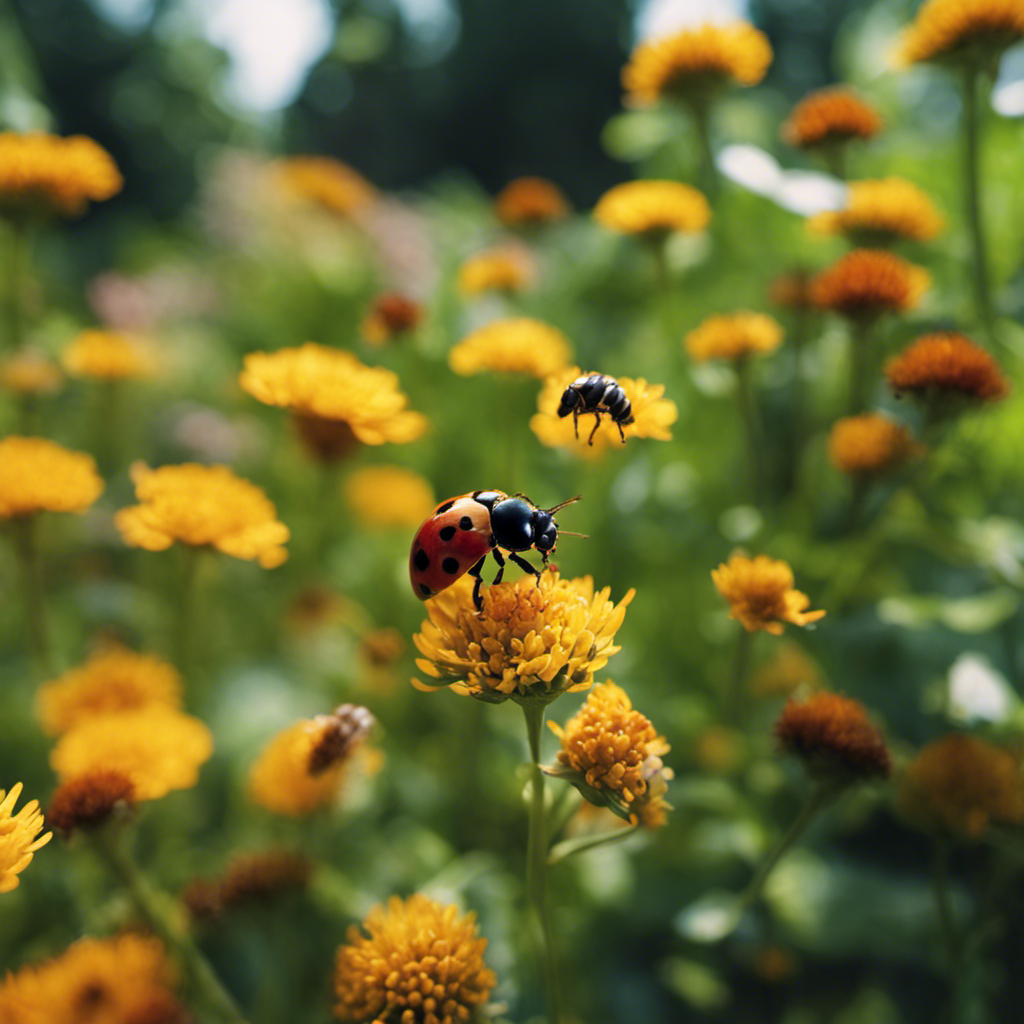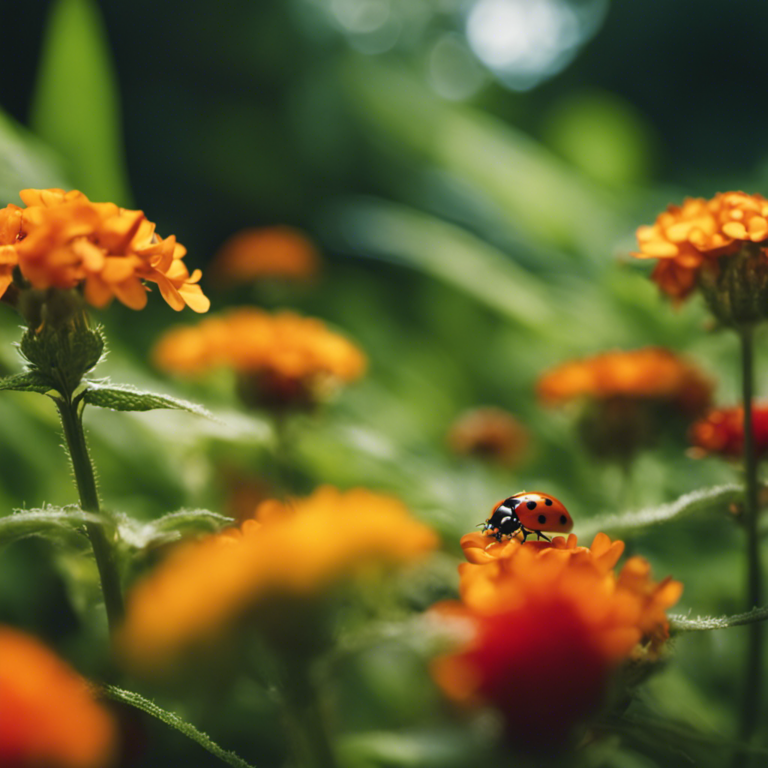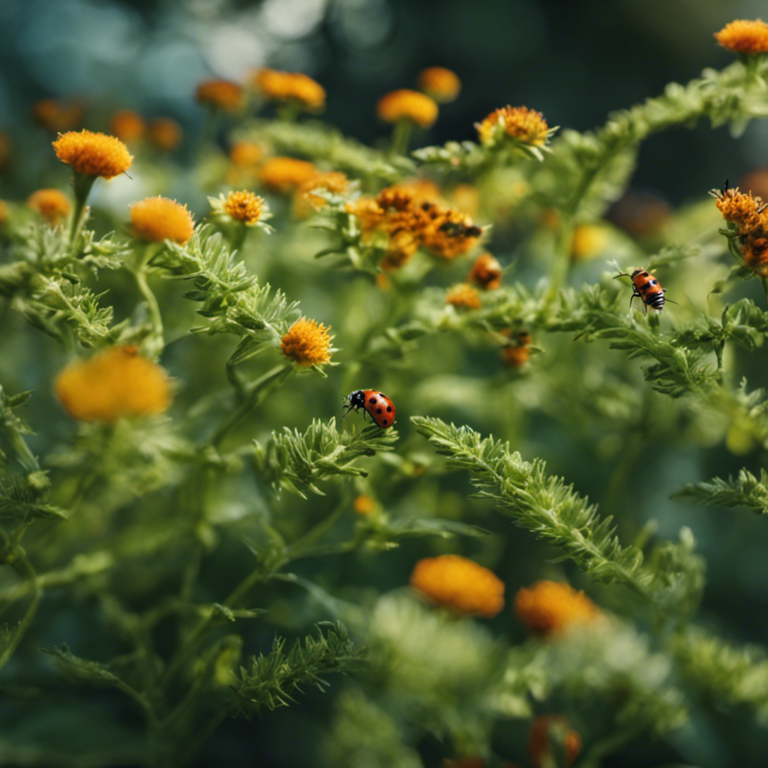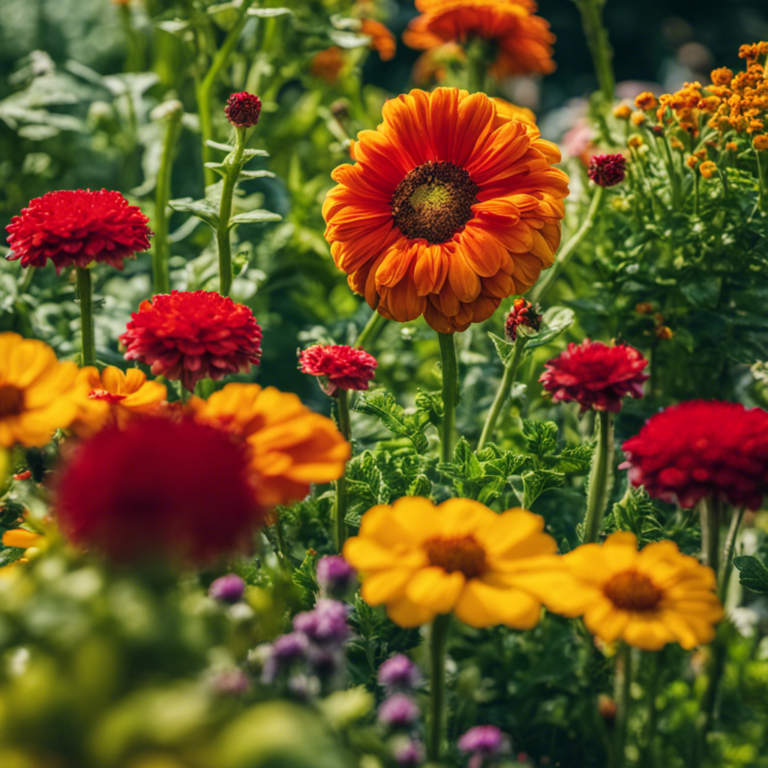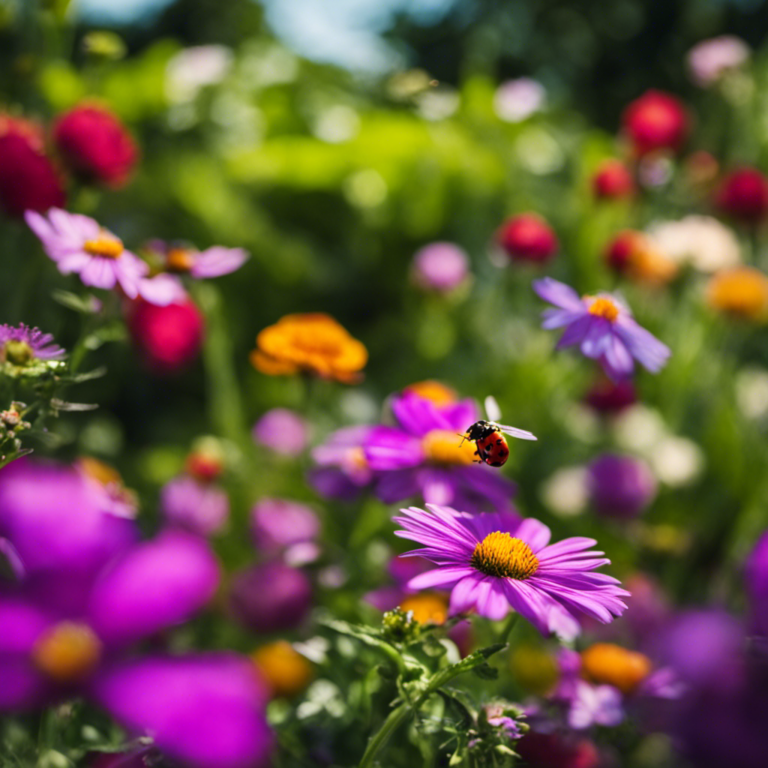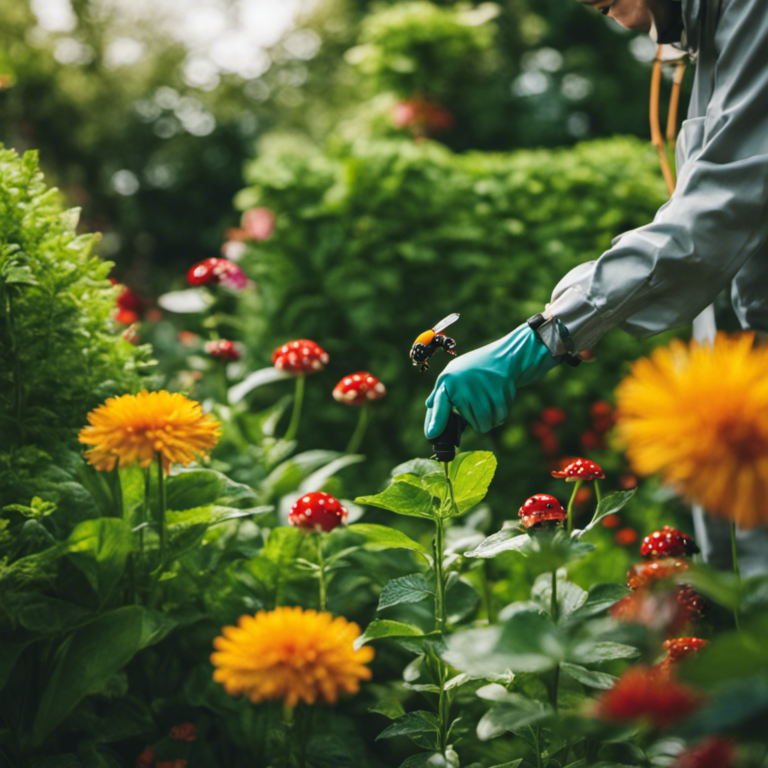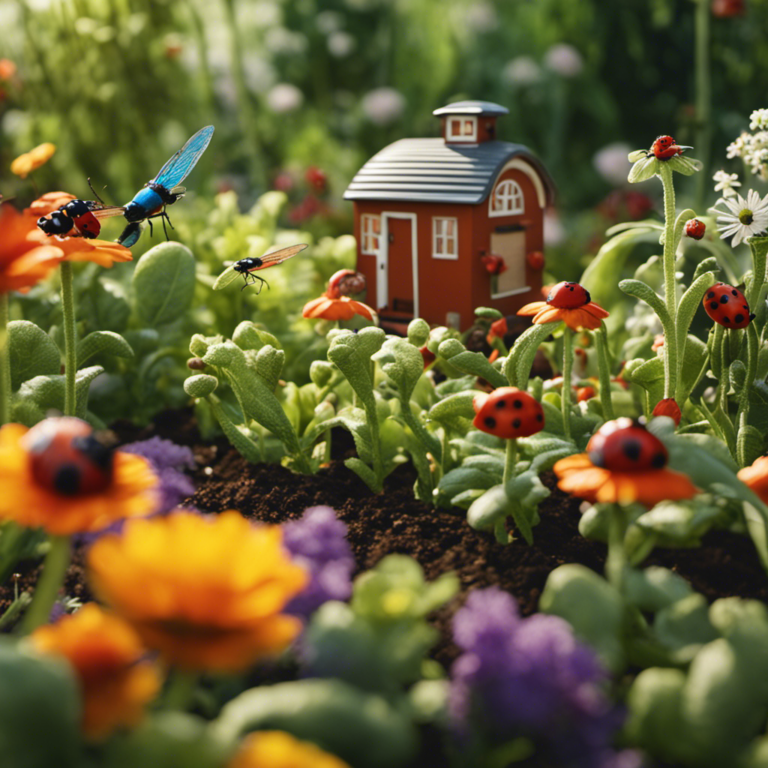Maintaining a healthy garden without relying on harmful pesticides is a dream for many gardeners. Fortunately, it is possible to achieve this goal by harnessing the power of nature and implementing smart gardening techniques.
In this article, we will explore the secrets of organic pest control and how you can create an environment that naturally deters pests while nurturing your plants. Say goodbye to pesticides and unlock the potential of your garden with these effective methods.
Key Takeaways
Maintaining a healthy garden without pesticides is not only possible but also beneficial for the environment and our health. Instead of relying on harmful chemicals, we can utilize organic pest control methods, integrate beneficial insects, practice companion planting, and create homemade pest sprays and traps to effectively manage pests.
In addition to these methods, cultural practices such as regular monitoring and proper plant spacing can further prevent pest infestations. By embracing these sustainable gardening practices, we can foster a thriving garden ecosystem while also protecting our planet.
As gardeners, it is important for us to understand the impact of pesticides on the environment and our own well-being. By opting for natural pest control methods, we can promote biodiversity, preserve beneficial insects, and maintain the health and balance of our gardens. Let’s make a conscious effort to nurture our gardens without compromising the health of our planet.
Understanding Organic Pest Control
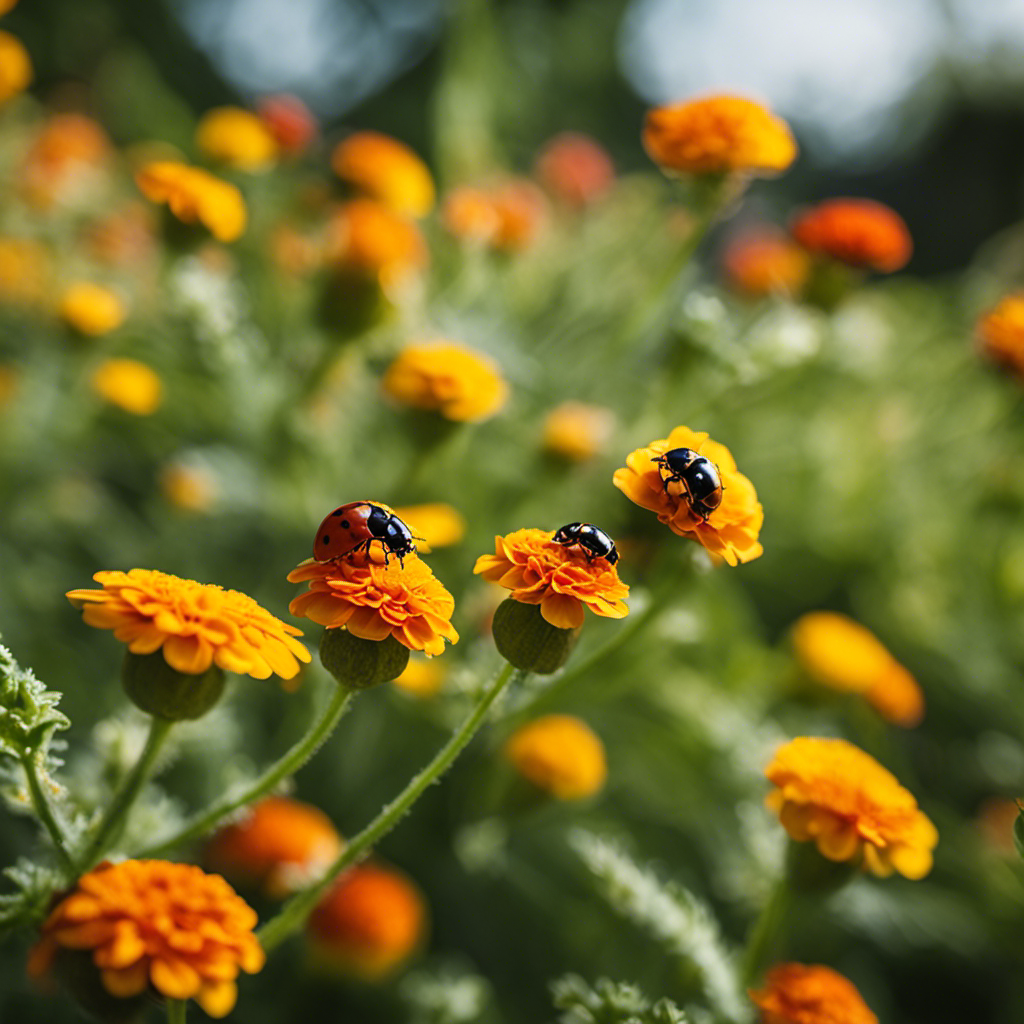
Understanding Organic Pest Control
Maintaining a healthy garden without pesticides requires a good understanding of organic pest control. Sustainable farming practices prioritize natural methods for managing pests and diseases.
One effective method is integrated pest management (IPM), which combines different strategies to control pests while minimizing harm to the environment. IPM involves monitoring pest populations, identifying specific pests, and implementing appropriate control measures.
These measures may include introducing beneficial insects, using physical barriers, practicing crop rotation, and employing organic pesticides derived from natural sources.
Beneficial Insects for Natural Pest Control
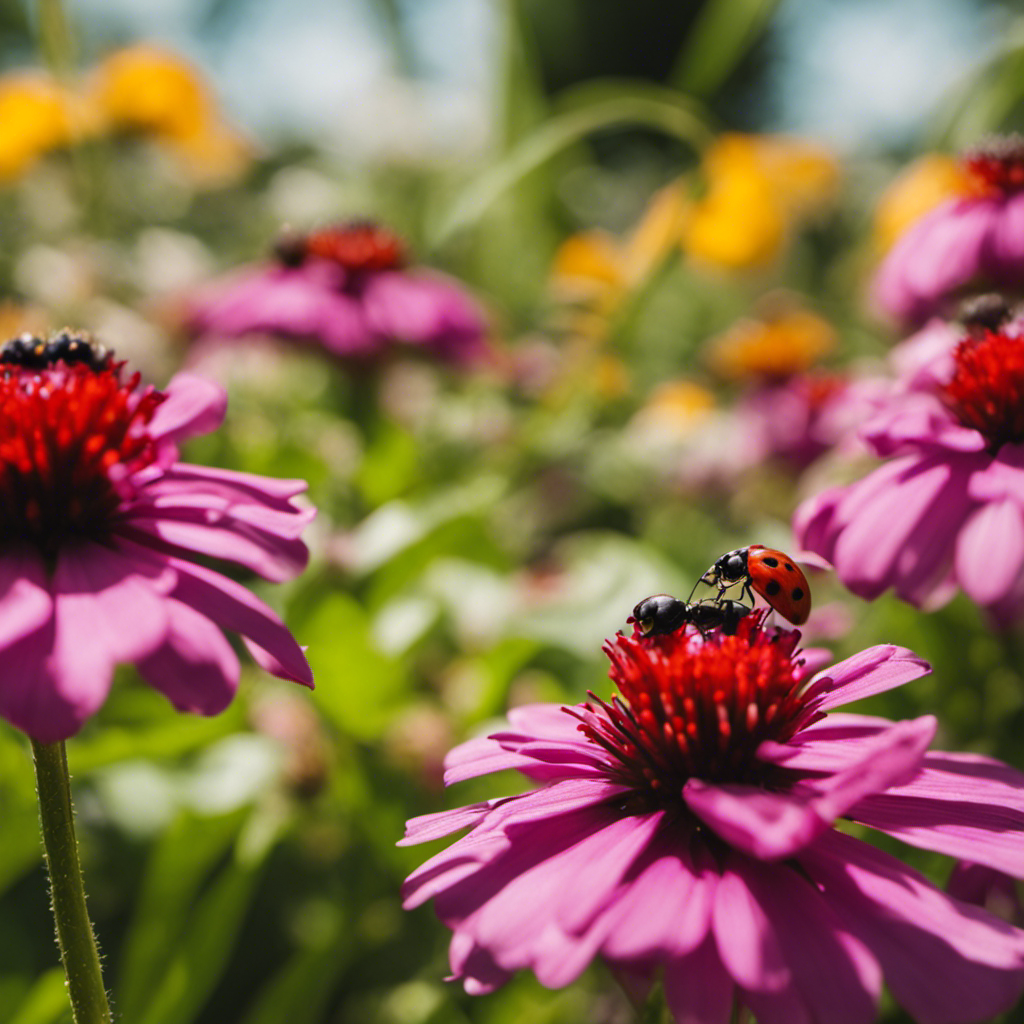
Beneficial Insects for Natural Pest Control
To effectively manage pests in your garden without the use of pesticides, you can rely on beneficial insects for natural pest control. These insects, known as predators, play a crucial role in maintaining a healthy and balanced ecosystem in your garden. They prey on harmful pests, reducing their populations and preventing damage to your plants. By attracting predators to your garden, you can create a natural biological control system that minimizes the need for chemical interventions.
One way to attract predators is by providing them with a suitable habitat. Incorporating plants that attract beneficial insects, such as flowering plants and herbs, can achieve this. Additionally, creating shelter in the form of brush piles or insect hotels can create a welcoming environment for these helpful insects.
Another effective method is to introduce beneficial insects directly into your garden. Examples of beneficial insects that can be purchased and released to control pests include ladybugs, lacewings, and parasitic wasps. These insects prey on common garden pests like aphids, caterpillars, and whiteflies.
By utilizing these natural methods of pest control, you can maintain a healthy garden without relying on pesticides. Not only will you protect your plants and promote biodiversity, but you’ll also contribute to a more sustainable and environmentally-friendly approach to gardening.
Companion Planting for Pest Management
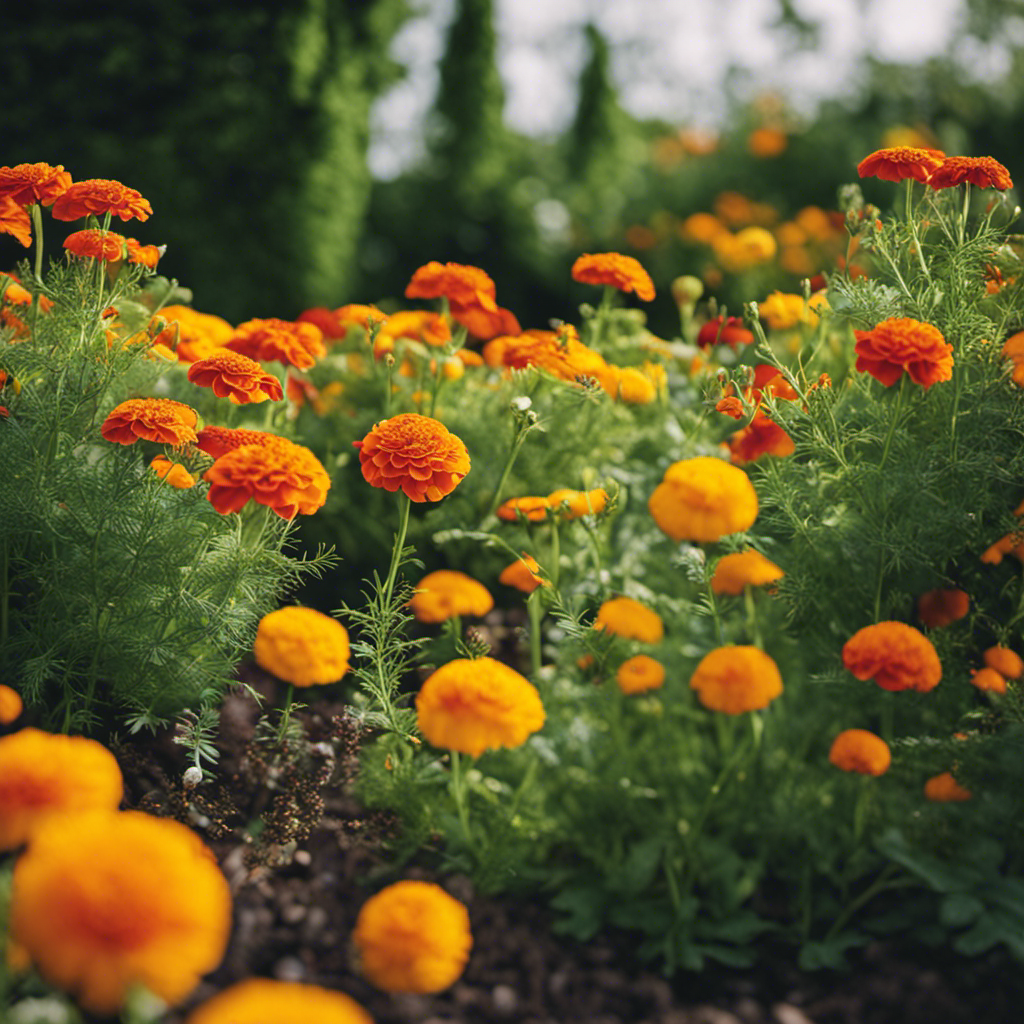
Companion Planting for Pest Management
If you want to control pests in your garden without using pesticides, companion planting can be a useful technique to incorporate into your gardening routine. Companion planting involves planting certain crops together to improve their growth and deter pests.
Here are three ways companion planting can help with pest management:
-
Crop rotation: By rotating your crops each season, you can disrupt the life cycles of pests that may have established themselves in your garden. Different crops have different nutrient requirements, so rotating them can also help maintain soil fertility.
-
Trap cropping: Planting trap crops, which attract pests, can divert them away from your main crops. For example, planting marigolds can attract aphids away from your tomatoes. This helps protect your main crops while providing a food source for the pests.
-
Interplanting herbs and flowers: Certain herbs and flowers, such as basil, lavender, and marigolds, naturally repel pests. Planting them among your vegetable plants can help deter pests and promote a healthier garden ecosystem.
Organic Homemade Pest Sprays and Traps
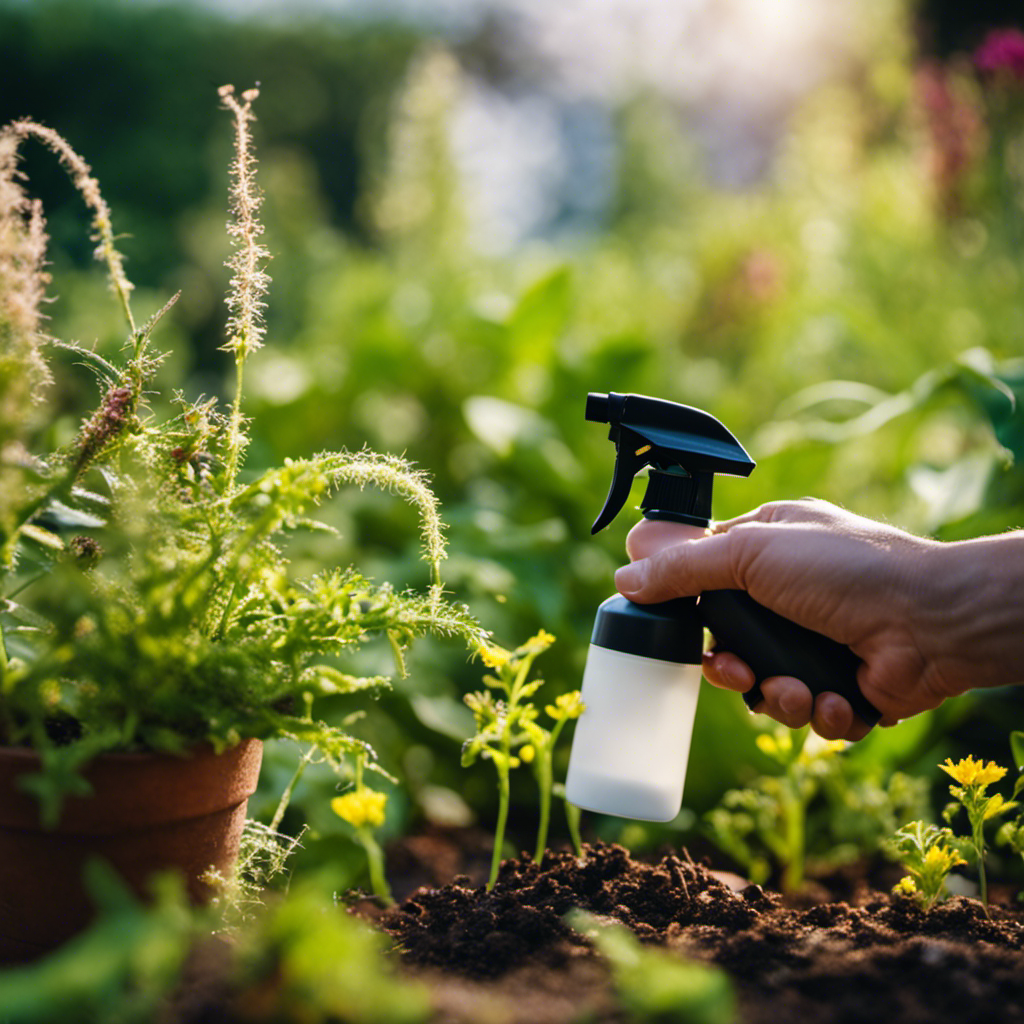
One effective way to control pests in your garden without relying on pesticides is by using homemade organic pest sprays and traps.
You can easily make pest sprays at home using common household ingredients like soap, garlic, and chili peppers. These ingredients have natural insecticidal properties, and when mixed with water, they create a spray that can be applied to affected plants to deter pests.
Homemade pest traps can also be made using materials such as plastic bottles or jars. Simply bait the traps with a mixture of sugar water or vinegar to attract and trap pests.
Remember to regularly check and empty the traps to keep the pest population under control. By using these homemade pest sprays and traps, you can effectively manage pests in your garden without resorting to harmful pesticides.
Cultural Practices to Prevent Pest Infestations
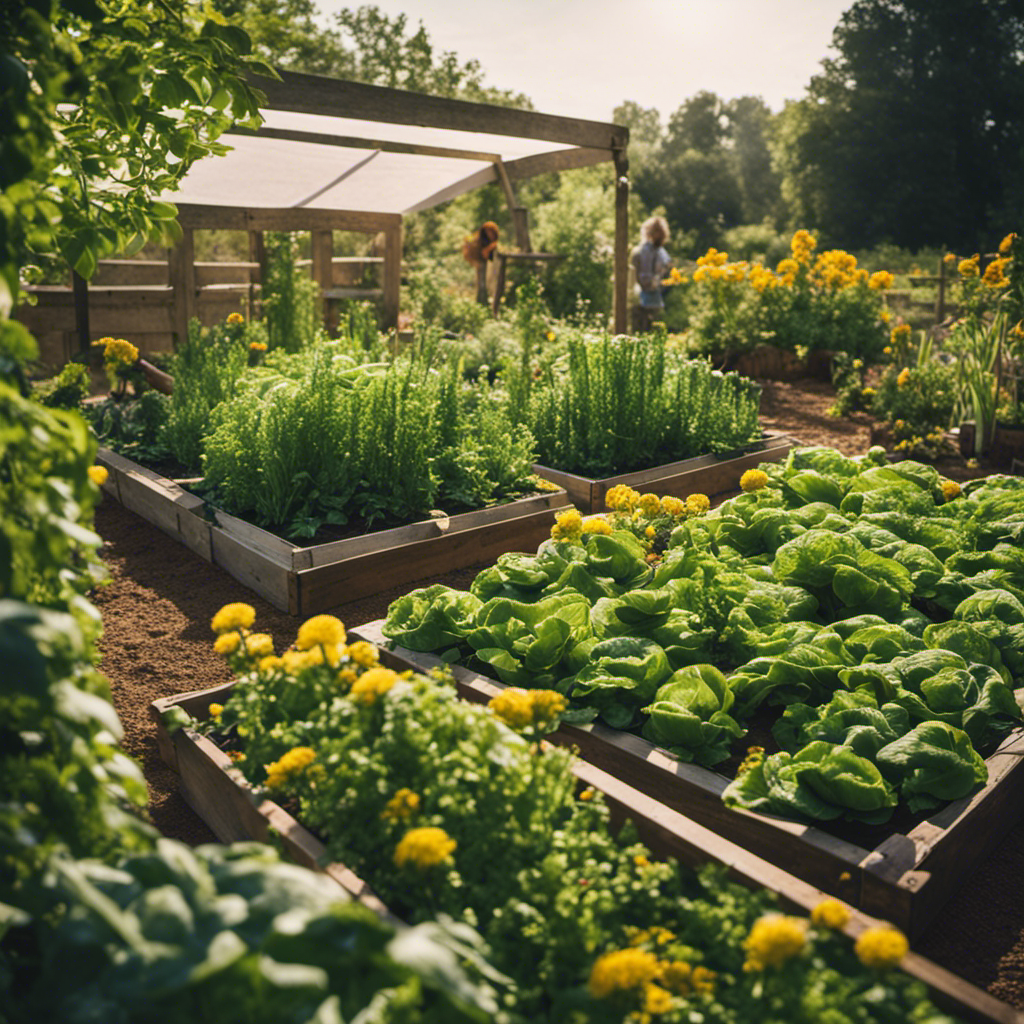
Preventing pest infestations in your garden can be achieved through the implementation of cultural practices. Here are three effective strategies to keep your plants healthy and free from pests:
-
Crop rotation: Rotating your crops annually disrupts the life cycles of pests and helps reduce their buildup in the soil. By planting different crops in different areas, you can prevent pests from establishing themselves and spreading.
-
Soil health: Maintaining healthy soil is crucial in preventing pest infestations. Start by enriching the soil with organic matter, such as compost, to improve its structure and fertility. Healthy soil supports robust and resilient plants that are less susceptible to pests. Regular soil testing can also help identify and address nutrient imbalances that may attract pests.
-
Good sanitation practices: Removing plant debris, fallen fruits, and weeds from your garden is essential to eliminate hiding places and breeding grounds for pests. Regularly cleaning and disinfecting your gardening tools also helps prevent the spread of diseases and pests.
Conclusion
Maintaining a healthy garden without pesticides isn’t only possible but also beneficial for the environment and our health. By understanding organic pest control methods, integrating beneficial insects, practicing companion planting, and using homemade pest sprays and traps, we can effectively manage pests without resorting to harmful chemicals.
Additionally, cultural practices such as regular monitoring and proper plant spacing can further prevent pest infestations. Embracing these sustainable gardening practices allows us to nurture a thriving garden ecosystem while protecting our planet.
